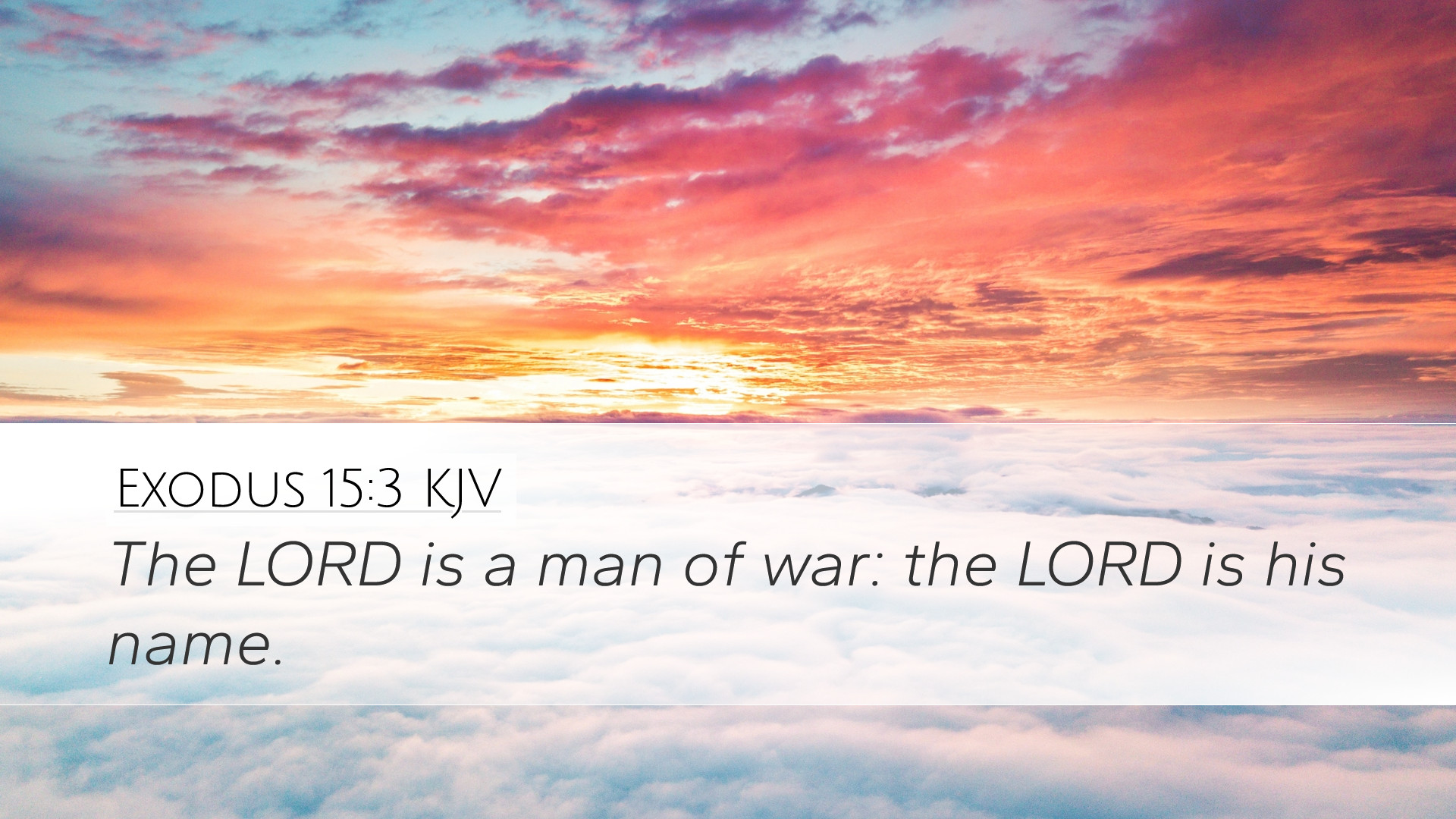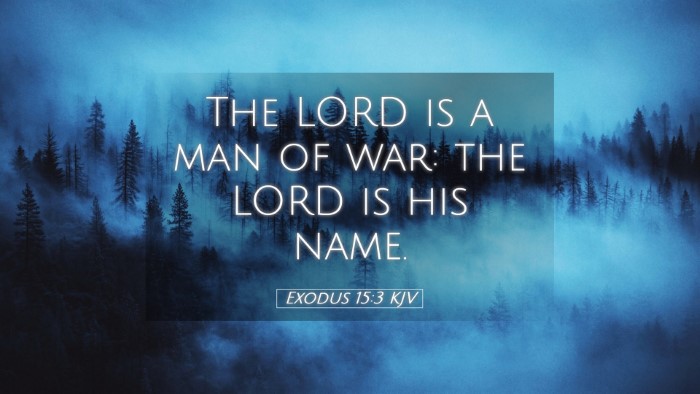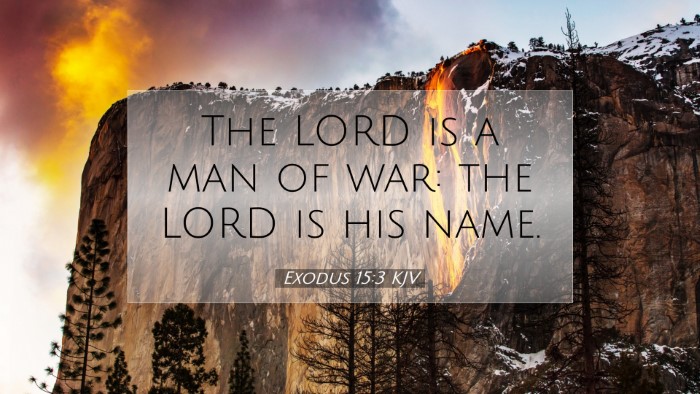Exodus 15:3 Commentary
Verse Text: "The LORD is a man of war: the LORD is his name."
Exodus 15:3 serves as a profound declaration of God's character, especially in the context of His mighty acts during the Exodus. This verse encapsulates the themes of divine power, deliverance, and the nature of God's engagement with evil.
Contextual Overview
This verse appears in the song of Moses after the Israelites crossed the Red Sea. It follows the miraculous deliverance from the Egyptian army, marking a significant moment in Israel's history and its covenant relationship with God.
Commentary Insights
1. The Nature of God as a Warrior
Matthew Henry emphasizes that the phrase “The LORD is a man of war” illustrates God’s active role in combating the forces of evil. By depicting God as a warrior, it affirms that He is not passive in the affairs of humanity but engages vigorously in defending His people.
Albert Barnes notes that this depiction of God draws on the ancient Near Eastern understanding of deities as warriors. In this cultural milieu, it was not uncommon for gods to be depicted as fighting against enemies on behalf of their people. This characterization uplifts God's sovereignty and might in leading Israel, assuring them of His protection.
2. The Significance of His Name
The declaration of “the LORD is his name” signifies not just identification but also the authority and power inherent in God's character. Adam Clarke points out that names in biblical texts often reflect character, and in this case, the name of the LORD (YHWH) expresses the fullness of His being, emphasizing that His nature embodies the qualities of a mighty protector and deliverer.
Theological Implications
1. Divine Sovereignty and Salvation
This verse serves to remind believers of God's ultimate sovereignty over both nature and nations. Matthew Henry argues that God's special interest in the deliverance of Israel presents an essential theological truth: His people can trust Him fully in times of distress. The very act of leading them out of Egypt signifies a deeper promise — that God intervenes in human history for the sake of His covenant people.
2. Encouragement in Spiritual Warfare
The motif of God as a warrior encourages believers to engage in spiritual warfare. According to Albert Barnes, this characterization assures believers that they are not alone in their struggles against sin and injustice. God fights for His people, inviting them to stand firm in faith against adversarial forces.
3. Understanding Conflict in the Christian Life
Adam Clarke explains that recognizing God as a warrior helps believers to frame their understanding of conflict within a biblical context. Rather than seeing conflict as solely a negative experience, this perspective allows Christians to understand that struggles are opportunities for God to display His might and fidelity. It suggests that trials serve as the backdrop for divine intervention.
Practical Applications
- Faith in God’s Protection: Believers are called to trust in God’s protective nature, especially in their personal trials.
- Engagement in Spiritual Warfare: Encourages believers to be proactive in their spiritual lives, understanding that God equips them for the battleground of faith.
- Seek God’s Glory: As the song of Moses praises God, it sets a model for believers to worship and glorify God for His deliverance and power.
Conclusion
Exodus 15:3 stands as a powerful pronouncement of God's character, emphasizing His active leadership and sovereignty over His people. Through the insights of Matthew Henry, Albert Barnes, and Adam Clarke, we see the profound implications of this declaration for worship, trust, and engagement in spiritual warfare. As we reflect on God as a warrior, may it embolden our faith and deepen our understanding of His unchanging nature as the protector and deliverer of His people.


